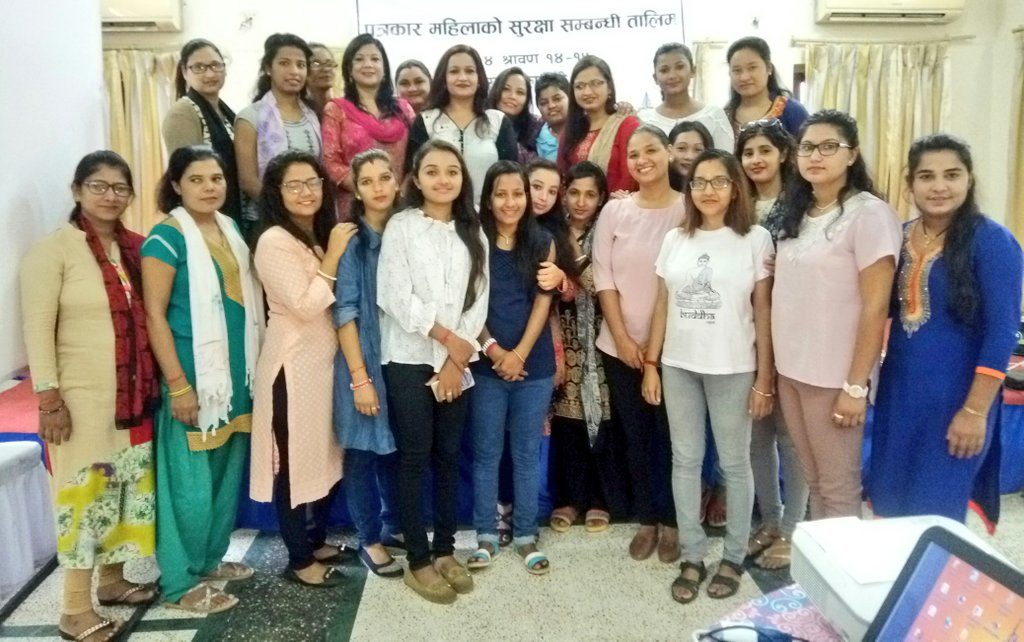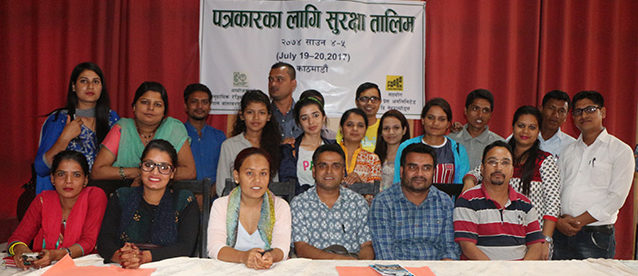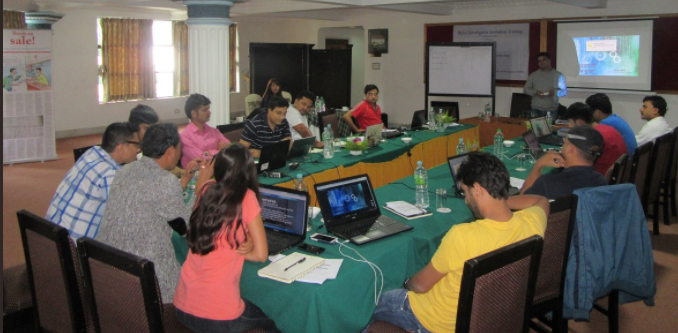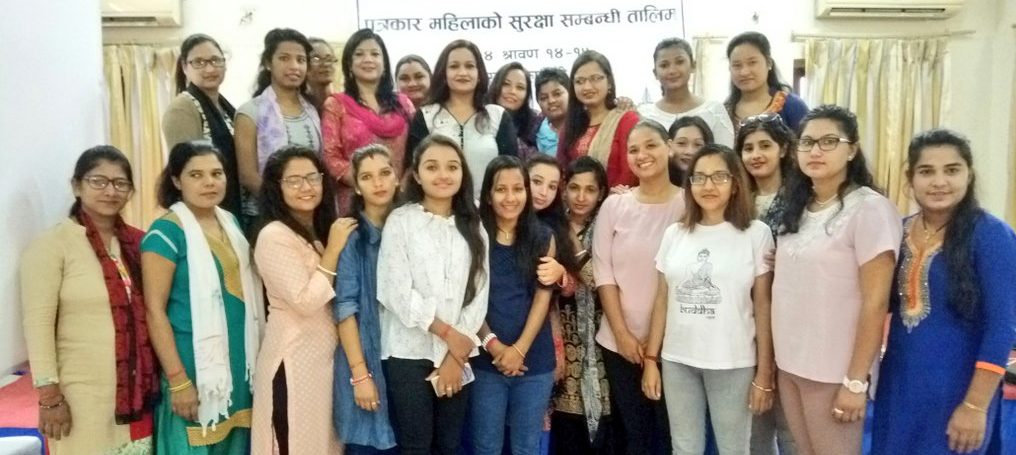During last two weeks, CMR-Nepal conducted five digital safety sessions to more than 100 journalists (more than half of them journalist women) – at trainings organized by Nepal Forum for Environmental Journalists (NEFEJ), Radio Sagarmatha (the pioneer community radio in the region), Sancharika Samuha (one each at Nagarkot and Bhairahawa) and Center for Investigative Journalists (CIJ) Nepal. Here are three observations from these sessions: a. Nepali journalists are not fully aware of digital security risks; b. Nepali journalists are not practicing basic digital safety techniques; and c. Nepali journalists need awareness and skills of digital safety.
Nepali journalists are not fully aware of digital security risks.
Journalists not only need to protect themselves but also they are responsible to protect their sources and data. But a majority of the journalists in those training sessions were aware of the digital security risks. A few even told the trainer that they have nothing to hide so they can hand me over their unlocked mobile phone. When they were told that the protection of their sources – who could have been communicating with them on mobile phones; and that their phones have logged-in access to their emails or social media accounts which could be misused, they thought about it. For many journalists, the risks posed by their unsecured use of digital devices, or internet, was a fascinating new knowledge.

Trainees in Bhairahawa in the safety training organized by the Sancharika Samuha. Photo: CMR-Nepal
Nepali journalists are not using basic digital safety techniques.
Quite a considerable number of journalists do not lock their phones or do not have passwords in their laptops, and have shared their email or social media passwords. The unawareness of the digital security risks has probably led them to the belief that locking mobiles or computers with a password or using two-step authentication in emails/social media is just an unnecessary hassle. Use of secure messaging or emails to communicate sensitive messages was far-fetched ideas for most of them when they were not even implementing the basic safety techniques for their privacy and security in the digital world.

Photo after digital safety training session to journalists organized by NEFEJ in Kathmandu. Photo: NEFEJ
Nepali journalists need awareness and skills for digital safety.
At the time when investigative reporting, especially on corruption in state agencies, is on the front pages of mainstream media and journalists have renewed energy to do such stories; and also it’s time when there is increased intolerance against journalists with possibility of surveillance on journalists, Nepali journalists are in dire need of awareness and skills for digital safety. There is a need for media houses, journalist associations, and media rights organizations to ensure that journalists are well aware of digital security risks and skilled in practicing at least basic digital security techniques to ensure their privacy and safety. The need is also for a digital security training manuals and digital security guides for journalists.

Training session on digital safety in Kathmandu organized by CIJ-Nepal. Photo: CIJ-Nepal








